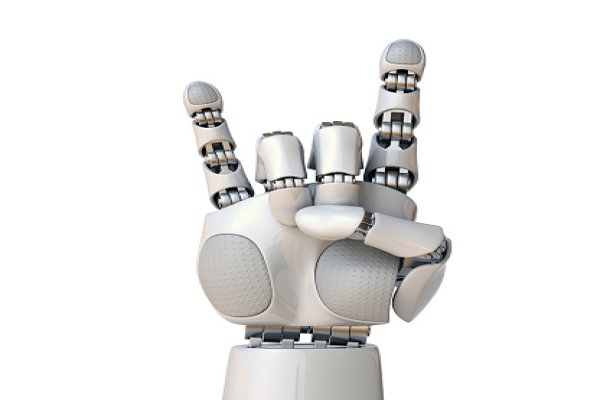Every day, a new AI application appears, with ChatGPT-based applications leading the charge. From automating customer service to powering personal assistants, it’s no wonder people feel like the newest AI technology from ChatGPT is changing the game. But even amidst all this hype, there’s one thing everyone can agree on – this AI revolution won’t be ending anytime soon.
Despite warnings of another AI winter looming on the horizon and past failures of overly ambitious projects, experts say that this time, we don’t have to worry about any bust occurring when it comes to using Artificial Intelligence powered by ChatGPT.
The introduction of OpenAI’s ChatGPT and AI-generated technology in the aftermath of the excitement surrounding the metaverse concept has created an interesting dynamic between those who are optimistic about its potential and those who remain skeptical. The buzz around this idea was further amplified with Non-Fungible Tokens (NFTs), derivatives of cryptocurrencies, and blockchain, making it a wise decision to heed warnings concerning hype cycles.
Silicon Valley requires a breakthrough, as the industry has been undergoing an unprecedented decrease in recent years. The tech field has been at the forefront of job cuts across the economy. Budget cuts have become standard practice in what was once a sector with a virtually unlimited amount of investment capital.
At Thursday’s virtual Town Hall of the CNBC Technology Executive Council, executives from various businesses assembled – particularly those that use AI technology but are not involved in its production. These companies span retail, media, legal services, agriculture, and logistics.
We organized a relatively balanced number of AI fans and skeptics, gathering them into groups to discuss the unexpected surge in ChatGPT’s popularity, attempting to differentiate between the excitement and what is true.
Several executives made the point that while the metaverse may be unclear to some people, AI is hastening technology procedures that have been established for as long as twenty years in many different business operations, such as software engineering, finance, operations, legal affairs, supply chain management, and creative areas.
At the Town Hall, people who were originally skeptical of the current hype cycle provided multiple illustrations of how AI is already included in more effective business procedures. Under Chatham House rules, executives could talk openly during these debates.
The market has taken the recent AI advancements seriously, as evident from this week’s competition between Microsoft and Google regarding AI for search engines. Following Google’s effort to counter Microsoft with its Bard AI, which was criticized internally as a “hastily-done and botched” task, the company’s shares dropped by 13% over two days, possibly intensifying the threat to its leadership in search.
Satya Nadella, the CEO of Microsoft, conveyed his delight regarding his competitor’s uneasiness this week in an interview with the Financial Times.
Satya Nadella, the Microsoft CEO, says:
“From now on, the [gross margin] of search is going to drop forever. There is such margin in search, which for us is incremental. For Google it’s not, they have to defend it all.”
Reid Hoffman, a board member of Microsoft, expressed to members of TEC last year that the company’s Artificial Intelligence (AI) development was accelerating rapidly. One example is Copilot – an AI system that creates up to 40% of code written by human software engineers.
Reid Hoffman says:
“There is literally magic happening.”
“AI will transform all industries,”
“So everyone must think about it, not just in data science. Across everything we are doing, we will have amplifying tools; it will get there over the next three to 10 years, a baseline for everything we are doing.”
At the most recent TEC Town Hall meeting, it was evident that generative AI and AI, in general, is more than just a new epoch of web searching, even if the news at this moment may have the highest economic effects for the biggest firms.
A cloud executive stated during the call.
Cloud executive says:
“This is a major, major, major revolution.”
“People compare it to the cloud revolution, or the mobile revolution or the internet revolution. I think that it is 100 times bigger than all of those combined. I think that it is as big as the Industrial Revolution. And I think there are a lot of parallels to the Industrial Revolution. And I think that companies that do not embrace it immediately, existing companies that will not embrace it immediately, there is a chance that they will become not relevant.”
Another cloud executive says:
“Even within tech to be honest, most of my peers are taking three or four years of development work and just throwing it out in terms of training neural nets for what they’ve done over the last few years,”
“Because out of the box, we’re getting higher accuracy … and then the ability to train it further. And the domain you’re in is just increasing performance.”
Tech leaders who have already adopted AI will likely incorporate generative AI in their operations and services/products for consumers. However, this comes with benefits and risks that need to be considered.
The current push around ChatGPT AI is evidence of the increasingly widespread acceptance of AI-driven technologies and their potential. Despite some skepticism surrounding AI’s capabilities and a potential bubble, the outlook for AI-powered chatbots remains encouraging. The increasing volume of experimentation shows that many believe in the business cases for ChatGPT AI applications and their scalability beyond just a tool for novelty conversations.
Source: cnbc



